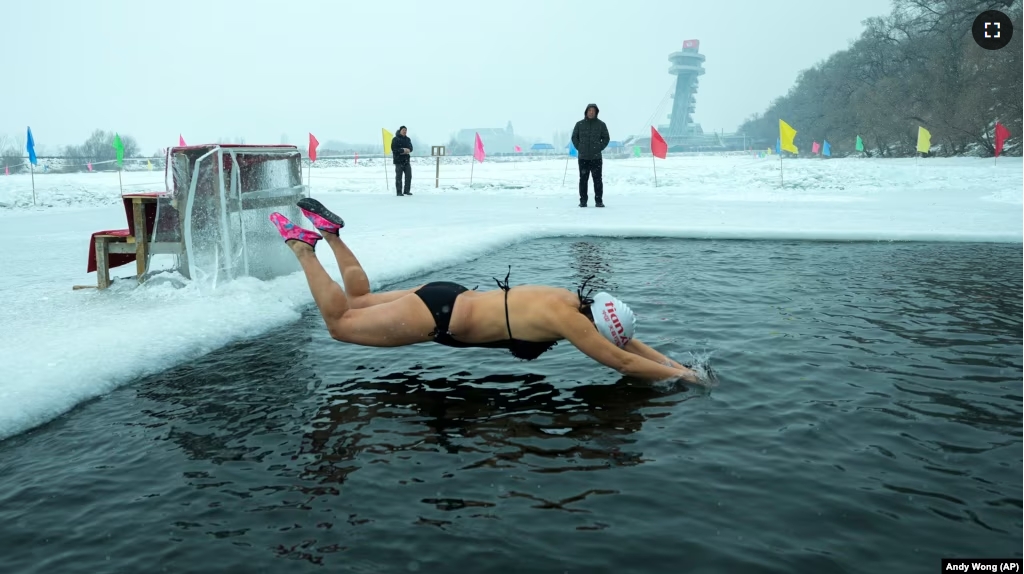From VOA Learning English, this is the Health & Lifestyle report.
Even as temperatures kept dropping in China’s northeastern “ice city” of Harbin, excitement rose among a group of swimmers who enjoy jumping into freezing waters.
The daily event, known as ice swimming, is a winter tradition in Harbin. Swimmers train daily throughout the year to get their bodies ready for the unusual swim. Reporters from The Associated Press recently visited the city and spoke with some of the swimmers.
To create a pool in the Songhua River, the swimmers first had to break a 10-centimeter thick cover of ice. Then they removed the ice pieces, took off all clothes except bathing suits and prepared to enter. One by one, they jumped into a freezing, 10-meter-long pool.
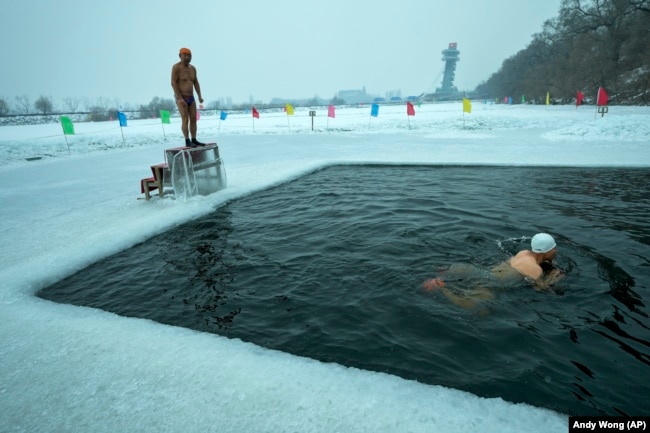
Some of the swimmers reported that their legs and arms quickly went numb after entering the water. The outside temperature was about minus 13 degrees Celsius and the water temperature remained near freezing.
One of the swimmers was Chen Xia. She came from Zhejiang province about 1,700 kilometers further south. She decided to jump into the river even though she had a cold. Chen said the winter waters where she lives are warmer than those in Harbin.
She said the experience strengthened her confidence in winter swimming. She has been taking part in the activity for about 20 years.
The 56-year-old Chen said the freezing waters made her skin feel like small pins were attacking her body. But, she added that the experience still brought her happiness. “I felt prickling all over my body. But it still made me feel blissful,” she said.
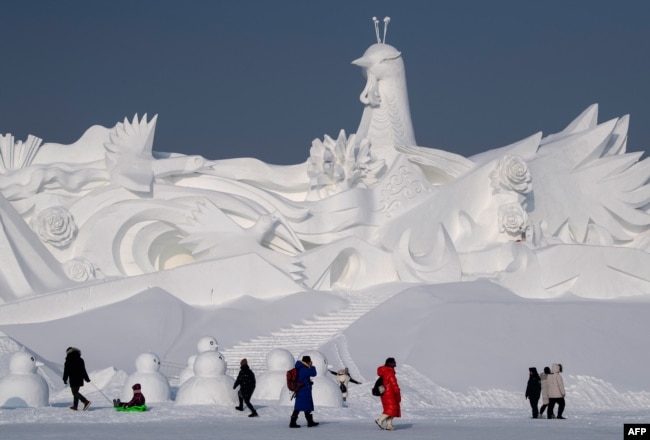
Yu Xiaofeng lives in Harbin, a city that sits near the border with Russia. The 61-year-old said winter swimming in the city dates back to the 1970s. At that time, locals saw Russian Orthodox religious believers being baptized in the river. Later in 1983, an official winter swimming group was established in Harbin.
The city also holds an ongoing winter celebration known for its huge, detailed ice and snow sculptures.
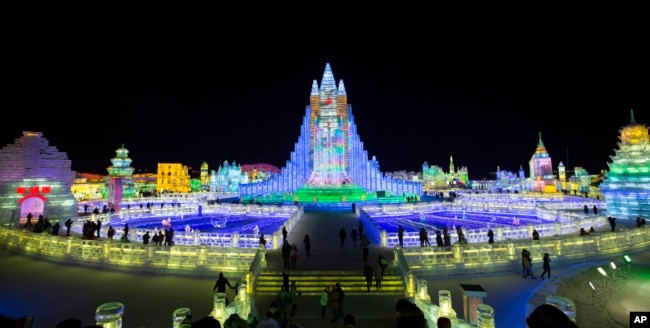
Winter swimming is considered a sport in China. But it gained popularity much faster in Harbin than in other parts of the country. Today, Yu said the city is considered a “holy land” for winter swimming.
Yu said the winter swimmers appear to have better health than others. She added that she has felt a great sense of family and joy in the community during her 30 years of winter swimming.
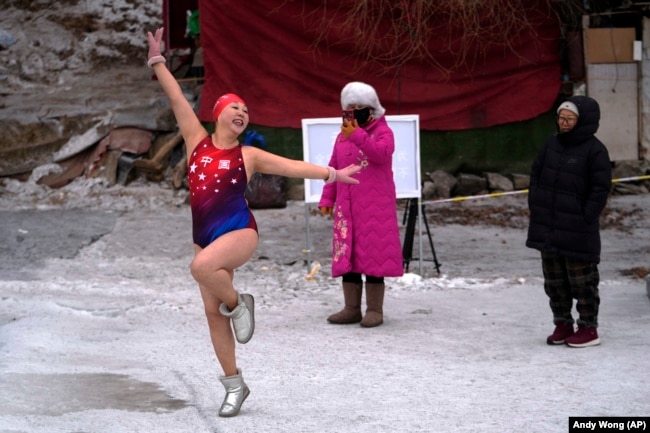
While the AP reporters did not quote medical experts for this story, some of the swimmers said they believe ice swimming is good for their health. During the COVID-19 pandemic, the group even came up with a new saying to describe the experience. They would rather “suffer through winter swimming than line up at the hospital,” Yu said.
You Decang is a 76-year-old winter swimmer who said he believes the activity helps keep him healthy. He noted that he has never caught a cold. You added, “If I go just one day without winter swimming, I feel quite uncomfortable.”
And that’s the Health & Lifestyle report. I’m Anna Matteo.
Andy Wong reported this story for The Associated Press. Olivia Zhang and Caroline Chen contributed to this report. Anna Matteo adapted it for VOA Learning English.
___________________________________________
Words in This Story
numb –v. to cause (a part of the body) to lose sensation
further –adj. going or extending beyond
confidence -n. a feeling or consciousness of one’s powers or of reliance on one’s circumstances
pin –n. a piece of wood, metal, or plastic used especially for fastening things together or for hanging one thing from another
prickling –v. to cause or feel a slight stinging or tingling sensation : prickle –n. a tingling sensation
blissful –adj. full of, marked by, or causing complete happiness
baptize –v. to dip in water or sprinkle water on as a part of the ceremony of receiving into the Christian church
sculpture –n. a three-dimensional work of art (such as a statue)
quote –v. to speak or write (a passage) from another usually with credit acknowledgment
uncomfortable –adj. feeling discomfort
